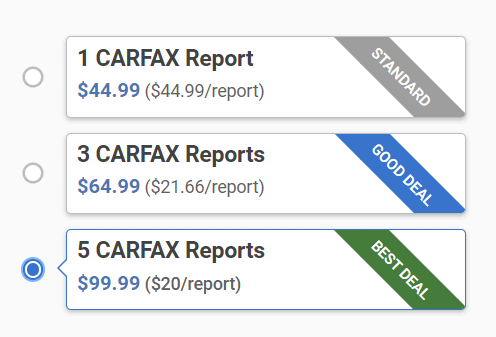Verifying a used car’s originality is an important step in buying. Sadly, some scammers try to hide a car’s accidental history, such as theft or salvage records, by tampering with the VIN. This illegal action implies changing or swapping the VIN (Vehicle Identification Number) to misreport the vehicle’s original paperwork. According to a report
The Good Thing is, you can discover these possible tricks and safeguard yourself from pricey scams with the right tools, such as a VIN decoder.
This post will help you break down VIN tampering, its reasons, methods to spot it, and how a free VIN check can keep you safe. Without further ado, let’s dive into it.
What is VIN Tempering?
VIN tampering happens when someone switches, takes off, or swaps out this number to conceal the car’s true identity. VIN tampering is a serious offense in most countries, as it makes it harder for authorities and buyers to trace a vehicle’s history and can lead to severe legal consequences. Such as:
- Hide theft (using a stolen car’s VIN from a legal vehicle) or paperwork.
- Cover up a crash or water damage in the vehicle.
- Keep salvage or rebuilt titles secret.
- Fool buyers into paying more than the car’s real value.
Our free VIN decoder is designed to provide you authentic information when you decode any VIN from our tool. Although, it is pretty difficult to spot VIN tempering in a Carfax report.
Where to Spot the VIN on a Car:
Knowing the right spots for the VIN helps you catch tampering to save yourself from scammers. You can find VINs in these places:
- Driver’s seat: You can see it through the windshield on the driver’s side.
- Driver’s side door jamb: Look for a sticker or metal plate for the identification of the original material.
- Under the hood: Must check for stamps on the engine block or frame.
- Car papers: Look at the title, registration, and insurance docs, their dates, and signatures.
If a car’s VIN plates seem odd, don’t match, or are missing, you should look into it.
Signs of caution for VIN Tampering:
Check out these common red flags to spot VIN tempering:
1. VINs Conflict Across the Car:
Firstly, use a VIN decoder to check if the VIN on the driver’s seat is the same as the one on the door jamb of the front seat, engine check, and duplicate or original paperwork. If they’re looking for a scam, it means that someone might have renovated the car using parts from other vehicles or stolen it.
2. Hint of Change or VIN Replacement:
Mainly, keep an eye out for things like:
- VIN (vehicle identification number) plate marks on your car.
- Different Rivets or screws from what the factory uses.
- These plates that aren’t straight or don’t line up right
- These plates are glued instead of screwed
3. Conflict on Vehicle Details:
When you find the VIN using a free lookup, you’ll see information like make, car model, and model year. If the report shows “Toyota Corolla” but you’re looking at a Honda Civic, something’s off.
4. Hint of Paint or Weld Near to VIN Spot:
Like new paint, welding traces, or damage close to the VIN area might point to tampering.
5. VIN Stickers Are Missing:
More often, new cars have VIN stickers on many parts, including the trunk and fenders. Missing stickers could be a danger sign.
Why You Should Use a VIN Decoder:
Your first defense against VIN tampering. This useful online tool turns the detailed car information into a 17-character code, such as:
- Manufacturing details (Model, year)
- Original specs (original or artificial parts)
- Market value estimates
- Criminal history
- Odometer readings
- Title status (salvage, rebuilt flood)
We offers a free tool VIN check service that gives you information from reliable databases. This contains records on par with Carfax, helping you to clearly check a vehicle’s background before you buy it. Apart from this, you can opt for cheap Carfax report for a more detail outcome.
If you do not know how to use VIN tool, check out this on how to decode a VIN for car buyers.
How to Find Tampered VINs Using a Decoder:
You can find the tampered VINS using a decoder in the following way;
- Go to the VIN:
Look in the main parts like the driving seat, door frame, engine bay, or the vehicle’s paperwork.
- Avail a VIN Decoder:
Head over to our tool, and input the VIN (vehicle identification number).
- Check Results for the Vehicle:
Carefully check what the VIN says about the car’s model, body parts, material, engine, and year.
- Find out hidden History:
Be careful for reports that are incomplete or missing over the years, or leave out criminal or accidental records. It could be a red flag.
- Notice Many State Registrations:
Check out carefully, as if the car has been registered in multiple states; if it is, then it might point to someone trying to take a branded title.
For Example:
You’ve found a shiny, lustrous, but used SUV that seems fresh off the lot. The seller insists it’s a 2019 model with no accidents. You decide to use our VIN decoder, and here’s what you found:
- The vehicle is a 2017 model.
- An accidental car accident occurred in 2020.
- With a salvage title registered in a different state.
Finding this out could save you a ton of money and from scammers.
Why Use CheapCarfax VIN Decoder to Detect VIN Issues:
Our company shares a free VIN lookup tool, which can:
- Stop scams:
Disclose odometer tampering, fake ownership documents, or hidden accidents.
- Stay safe:
Observe if the car has any open recalls that could make driving risky.
- Better bargaining:
Use the verified history to push for a fair deal.
- Be sure of your purchase:
Understand what you’re getting so there are no bad surprises later.
Strategy to Stay Safe When Purchasing a Used Car:
- Look at multiple VIN spots on the vehicle.
- Check a reliable VIN decoder before making any purchases.
- Hold off on paying cash until you’ve confirmed the car’s background.
- Match the seller’s claims with the vehicle’s history report.
Trust your gut and walk away if something feels off. As a car buyer, you must know what to look when buying a used car.
Conclusion
Checking VIN tampering doesn’t guard your money. It helps keep you out of legal trouble. Scammers hope buyers ignore this vital step. By using CheapCarfax’s free VIN decoder, you can confirm a vehicle’s past in moments, catch fraud, and purchase with peace of mind.
Verify your car today with CheapCarfax – Quick, Free, and Reliable.




